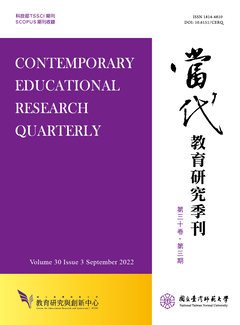

This study explored the perceptions of undergraduate students regarding the frequency and their approval of classroom incivilities, and examined the relation between classroom incivilities (i.e., passive and active incivilities) and character concepts (i.e., respect, responsibility, and self-discipline). The participants comprised 730 undergraduate students from 6 universities in Taiwan. The findings are as follows: (a) The students perceived more passive classroom incivilities compared with active classroom incivilities; they disapproved of all incivilities, but particularly disapproved of active incivilities. (b) The students in Southern Taiwan perceived more uncivil behaviors in class and disapproved of these behaviors more compared with the students in Central and Northern Taiwan, public school students disapproved incivilities more than private school students. Third year students perceived more uncivil behaviors than first year students. No difference occurred in the perceived frequency and approval of classroom incivilities between male and female students. (c) All students attained above average scores regarding the character concepts of respect, responsibility, and self-discipline. Students in Southern Taiwan attained higher scores than students in the Central and Northern Taiwan, public school students higher than private school students, and male and female students exhibited no differences. (d) Student perceptions of classroom incivilities and their frequencies were significantly and positively correlated with student character concepts, but the degree of student approval of classroom incivilities was significantly and negatively coorrelated with these character concepts; thus, student character concepts can predict perceptions of classroom incivilities and the way students conceive respect can negatively predict their approval of classroom incivilities.

This work is licensed under a Creative Commons Attribution-NonCommercial 3.0 Taiwan License.
Center for Educational Research and Innovation, National Tawain Normal University
162, Ho-Ping East Rd, Sec. 1, Taipei, Taiwan | Tel:+886-2-7749-3670 | E-mail: cerecerq@gmail.com
CERI | NTNU | E-mail Alerts | Open Journal System
© 2014 CERI-NTNU
